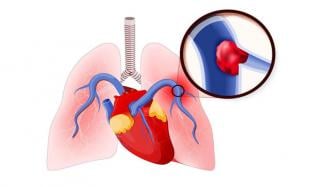
Stress is a mental and physical reaction to life events, and affects almost everyone daily.
From something mundane, like a pending deadline, to dangerous situations like a near-death experience– These responses to stress are helpful and short-lived.
However, when these feelings persist, they set a person up for several health issues, some of which are deadly, including heart disease, cancer, and obesity, among others.
In times when there is a physical threat, chemicals and hormones shoot through the bloodstream to prime the body in preparation.
This sparks a rapid heart rate, breathlessness, and palpitations to prime a person for fight or flight.
Historically, long-term activation of this fight or flight response can potentially have hazardous or even lethal effects on the body. Hence, finding a way to manage stress in between the daily grind is imperative.
Effects of stress on the body
Several processes within the body are affected due to long-term exposure to stress. Some of them include;
1. The Reproductive System
Stress greatly affects reproductive health by way of the hypothalamic-pituitary-adrenal (HPA) axis which increases cortisol production within the body. An excess of this causes issues with menstruation, hormonal issues, PMS symptoms, and anovulation where the body does not release an egg for the month.
It also increases the risk of preterm labor for expectant mothers, as well as pre-eclampsia, gestational diabetes, anxiety disorders, post-partum depression and even directly effects the child by way of altering its HPA axis programming, i.e. changing they way they will respond to stress in the future.
Furthermore, impacts to their cardiovascular, immune, metabolic, and behavioral systems have also been observed in studies throughout history.
2. Growth Hormones
Prolonged activation of HPA hinders the release of the growth hormone alongside the insulin-like growth factor 1, both of these are essential for normal growth. Glucocorticoids that are released during prolonged stress cause the tissues in the body to be less responsive to IGF-1. Research has found that stress caused by emotional deprivation or harassment has been linked to cause a short stature and delay physical maturity in a number of children.
3. The Gastrointestinal Tract
Stress has been commonly known to cause issues with digestion. There are a number of ways in which stress affects the digestive system; firstly CRH has been known to directly hinder the release of a stomach acid. But it can also speed up the process of elimination.
Not to mention, elevated stress has also been known to increase a person’s appetite thereby increasing fat stores in the body.
4. The Immune System
Due to its relationship with the immune system, a person can easily become vulnerable to colds, infections, fatigue or the flu.
Amid the heightened cortisol levels, prolonged stress can make the body more susceptible to diseases as it ‘switches off’ (i.e. suppresses) the white blood cells.
An alarming thing is also that PLOS ONE by Yale Cancer Cente links the decrease in white blood cells to the spread of cancer.
In this study they found that fusion of the white blood cells (leukocytes) with cancer cells causes a major spread.
However, cancer is not the only risk factor. Low levels of corticosteroid within the body,increase the risk of developing autoimmune diseases.
Not only that but the over activation of antibody producing B cells can aggravate existing conditions like lupus.
Symptoms of Stress
1. Emotional Symptoms
Frustration or moodiness
Feeling agitated
Feeling overwhelmed, like a person may be losing control
A difficulty in relaxing
Low self-esteem
Feelings of loneliness, worthlessness and depression
Peer avoidance
2. Physical Symptoms:
Bouts of low energy
Headaches
Insomnia
Chest pain
Digestive issues
Loss of libido
Ringing in the ear, cold hands and feet, as well as nervousness
3. Cognitive Symptoms:
Compromised judgment
Pessimism
Forgetfulness and disorganisation
An inability to focus
Racing thoughts
Behavioural Symptoms:
Nail biting, fidgeting and pacing
An increased use of alcohol, cigarettes or drugs
Changes in appetite where someone is either overeating or not eating enough
Procrastination















